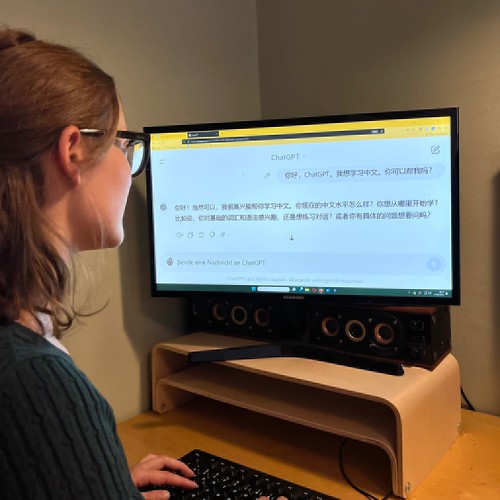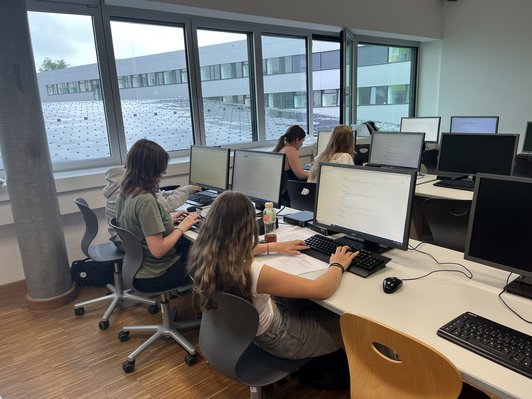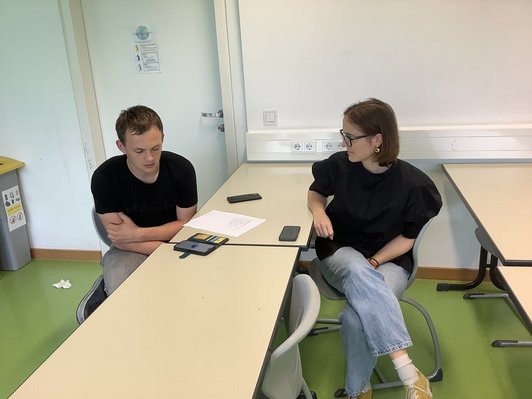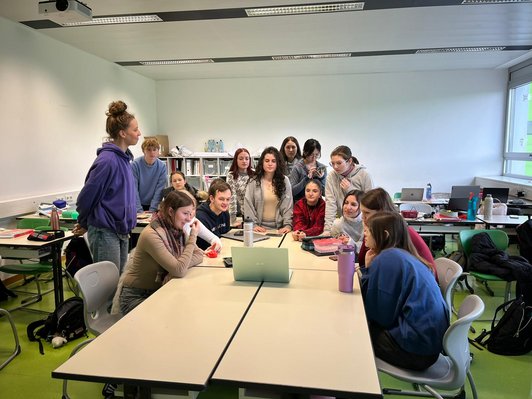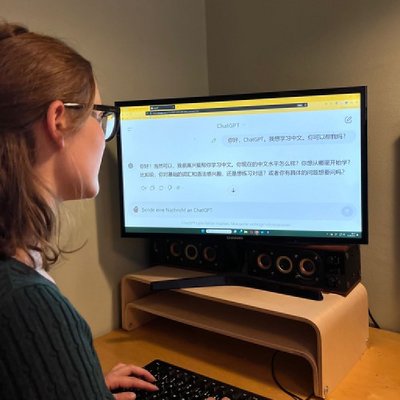MultilinguA.I.
Artificial intelligence in the foreign language classroom
Large Language Models (LLMs) are advanced artificial intelligence systems that specialise in understanding and generating human language. LLMs, such as ChatGPT, have great potential for learning and using languages. For example, LLMs can create individualised language learning content in a matter of seconds, provide detailed grammar explanations, correct texts or even serve as a foreign language conversation partner.
Alongside positive future scenarios, the topic is also causing great uncertainty in the education sector. Against the backdrop of the ubiquitous use of LLMs, such as ChatGPT, educators raise critical questions regarding the design of learning tasks, the reliability of answers provided by ChatGPT, or the digital competences learners need to navigate and effectively use LLMs in the future.
This is where ‘MultilinguA.I.’ comes in: it investigates how large language models can be used in the foreign language classroom. Focusing on French and Chinese as target languages, we explore the manifold opportunities, as well as the risks of using LLMs in the context of language education. For that matter, two partner schools in Vienna and Lower Austria with a focus on business education were selected due to their affinity for research.
The project starts by discussing students' experiences and future perspectives regarding the use of Artificial Intelligence and LLMS as a learning aid. In the main phase, students will take on the role of ‘citizen scientists’ in order to experiment with ChatGPT for language learning purposes and to specifically assess its effectiveness as a foreign language conversation partner. For this purpose, we closely work together with the teachers and learners to develop adequate and stimulating learning tasks that specifically call for the use of LLMs, such as ChatGPT. The project will focus on the linguistic aspects of these interactions as well as on the emotional experience.
The aims of the Citizen Science project are:
- the development of digital competence,
- the promotion of learner autonomy, i.e. the ability of learners to take control of their own learning journey,
- offering high school students insights into scientific research methods.
As a long-term project output, an evidence-based collection of learning tasks will be created in collaboration with our partner schools, which will help language educators to incorporate the use of LLMs in a meaningful way. This collection will be published as a digital handbook and will be freely accessible through our project website.
The project is led by Eva Vetter and co-investigator Julia Renner (University of Vienna).
 Schools
Schools
 Partners from Economy and Society
Partners from Economy and Society
 Scientific institutions
Scientific institutions

